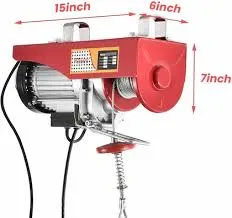


The Versatility and Importance of Pallet Carts in Modern Logistics
In the dynamic world of logistics and supply chain management, the efficiency and effectiveness of material handling equipment play a pivotal role in ensuring smooth operations. Among such essential tools, pallet carts have emerged as a fundamental asset. These versatile devices facilitate the movement of goods on pallets, addressing various challenges faced in warehouses, distribution centers, and retail environments.
A pallet cart, also known as a pallet jack, is a manually operated or powered device designed specifically for lifting and transporting palletized loads. Its simple design includes two forks that slide under the pallet, a handle for maneuvering, and wheels for mobility. The significance of pallet carts lies in their ability to streamline the loading and unloading processes, thereby improving productivity and operational efficiency.
One of the primary benefits of using pallet carts is the reduction of manual labor required in material handling. In traditional settings, workers would often struggle to lift heavy items, leading to physical strain and increased risk of injuries. Pallet carts alleviate this burden by allowing operators to lift and move heavy loads with ease. This not only promotes a safer working environment but also enhances employee satisfaction and productivity as workers can focus on other value-added tasks rather than struggling with physical labor.
Moreover, pallet carts are incredibly versatile and can be utilized across various industries, including manufacturing, retail, logistics, and warehousing. Their adaptability allows businesses to optimize their operations and cater to diverse product types and sizes. Whether transporting bulk raw materials in a manufacturing facility or moving finished goods in a retail environment, the pallet cart proves to be an invaluable asset.

The design of pallet carts has also evolved over the years, with advancements in technology leading to more efficient models. Electric pallet jacks, for instance, have become increasingly popular due to their ability to lift heavier loads with minimal effort from the operator. These powered versions not only enhance productivity but also reduce the time taken to move goods across long distances within warehouses.
An essential feature of pallet carts is their ability to handle standard pallet sizes, which simplifies inventory management and improves storage solutions. With a consistent pallet size, businesses can easily stack, store, and retrieve goods, ensuring an organized and efficient warehouse environment. This standardization enables seamless coordination between different parts of the supply chain, making it easier to manage inventory levels and reduce the likelihood of stockouts or overstock situations.
In addition to their practical applications, pallet carts also contribute to sustainability efforts in logistics. By facilitating more efficient transportation and reducing the need for excessive labor, companies can minimize their carbon footprint. Efficient use of resources leads to less energy consumption and waste, aligning with the growing emphasis on sustainable practices within the industry.
In conclusion, pallet carts serve as an indispensable tool in modern logistics and material handling. Their ability to enhance operational efficiency, reduce labor costs, and promote workplace safety has made them a fundamental component of supply chain management. As industries continue to evolve and adapt to changing demands, the importance of pallet carts will undoubtedly remain significant, proving that even simple tools can drive substantial improvements in productivity and sustainability. Investing in quality pallet carts is not just about improving material handling; it is about paving the way for a more efficient and safer work environment in an increasingly competitive landscape.



